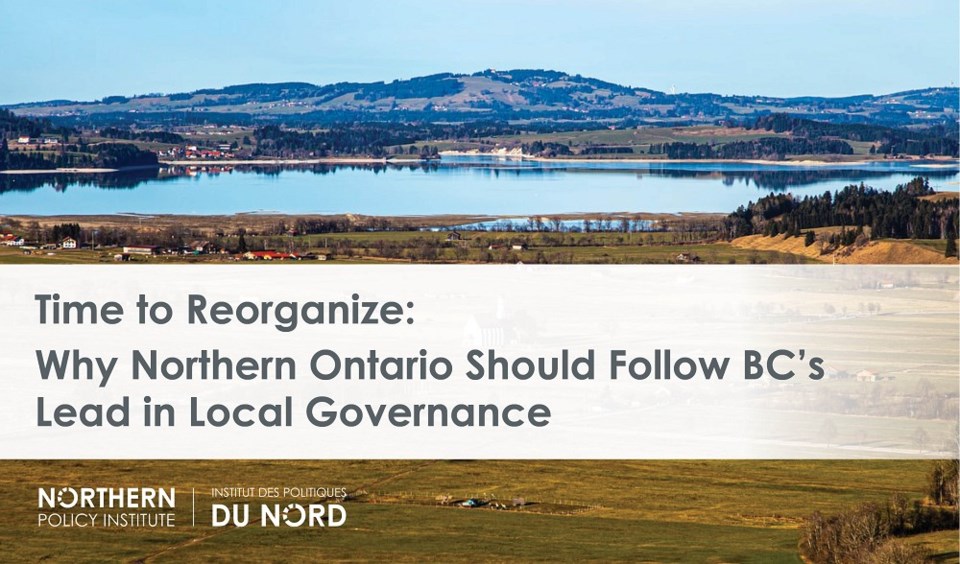February 18, 2021 | Anthony Noga
Ontario’s northern regions would benefit from implementing Regional Districts (RDs) inspired by what is in place in British Columbia. This project examined unincorporated areas in Ontario’s North and how they interact with municipalities and First Nations communities, with the goal of enhancing local governance for Northerners. Research and consultations with Northerners helped provide an overview of the existing structure in Northern Ontario, including how services are delivered and what government bodies are involved. This research phase identified that there are common issues across Northern Ontario, but also that each community has its own unique issues and requires the flexibility to make its own decisions on what is best for them. A case study in the Pawgwasheeng (Pays Plat), Rossport, Schreiber, and Terrace Bay region of Northwestern Ontario helps to ground the project.
The study identifies potential remedies, ranging from tweaks to the status quo, all the way to outright secession, and evaluates the merits of each by comparing them to similar efforts elsewhere in Canada. Based on the evidence analyzed, the optimal solution is British Columbia’s RDs, a form of regional governance that was designed to address the same issues this study looked at, has operated successfully for over 50 years, is flexible to local needs, appears to lower costs and raise service levels, and fosters collaboration among municipal, unincorporated, and First Nations communities.
Non-standardized data collection and measurement make municipal performance comparisons unreliable. As such, the study avoids a quantitative comparison of performance indicators, especially since data for unincorporated areas are of extremely low quality. Replacing the existing Unorganized census subdivisions with new ones that better align with local communities would greatly improve this situation. Further recommendations include research on where the geographic boundaries of the RDs should be set; an economic impact analysis of the effects of unincorporated fringe populations on municipalities; and an examination of the role the Municipal Property Assessment Corporation (MPAC) can and does play in setting tax burdens in the North.
